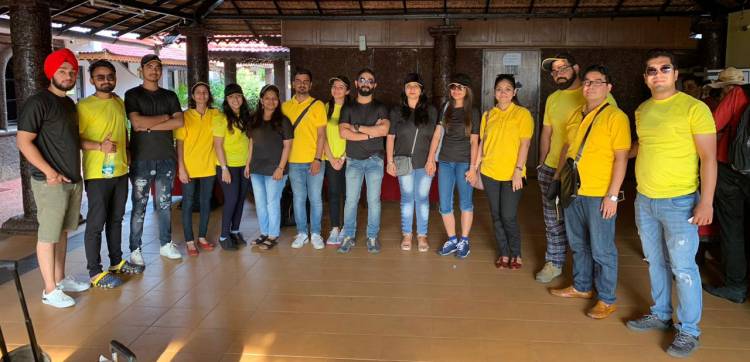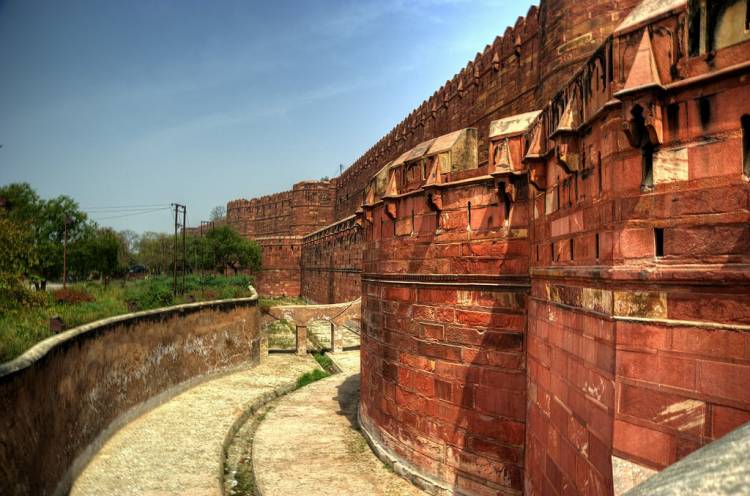
Kailash Manasarovar Aerial Darshan at Just @ Rs 35,000 Reserve Your Seat Now! Click Here
Since the time Vasco da Gama of Portugal discovered India in 1498, the Europeans had been hearing of the famous south Indian spices, muslin, and many other kinds of stuff, which allured them to establish their market in India. The Portuguese were the first ones to establish themselves in Goa in the first half of the 16th century. Later in the 17th century, the Italians, British, French, and Dutch, who came to India basically for trade, started taking advantage of the disunity among the Indians and tried to establish their imperial colonies in India. In the meantime, all these European companies faced tough competition from each other, and the British emerged as a winner by the end of the 18th century.
After conquering their counterparts, the British now looked forward to consolidating their position in India. Having seen the disunity among the Indian kings, they started Delhi Metro Traindefeating them one by one, and soon controlled the power of India. Soon after the British EastIndia company started ruling over India, they exploited the Indians so much that a famous revolt in 1857 took place against them, often called the first war of Indian independence under the leadership of Rani Lakshmi bai (Jhansi), the Mughal ruler Bahadur Shah Zafar (Delhi), Tatya Tope(Maharashtra) and Veer Kunwar Singh (Bihar). But despite the bravery of these leaders, the revolt failed again owing to the lack of proper coordination among the revolutionaries. However, the rule of east India company ended, and the power went into the hands of the British monarchy.
The British in India, though carried many reforms in India, like setting up modern educational institutions, establishing a vast network of railroads and telegraph lines, and introducing a new administrative system; at the same time followed the policy of 'divide and rule' with an aim to part the Indians so that they would not create a problem for the British Empire in India. But some Indians, like Bal Gangadhar Tilak, Dadabhai Naoroji, and several others, understood this and started awakening the sense of patriotism among the Indians.
Request for Price Request for Price India's struggle for independence entered a new phase with the arrival of Mohandas Karamchanda Gandhi, better known as the Mahatma Gandhi, from South Africa in the first decade of the 20th century. A firm believer in non-violence, Gandhi had a strange way of Independence Day of keeping the points - through Satya graha, the request for truth. Under the leadership of the revolutionaries like Chandra Shekhar Azad and Bhagat Singh, the Indian National Congress, and leaders such as Jawahar Lal Nehru, Subhash Chandra Bose, Sardar Ballav Bhai Patel, and Gandhi's guidance, the freedom struggle got a new shape as entire India stood up together to drive out the Britishers from India through several movements such as Non-Cooperation Movement (1920-22), Civil Disobedience movement(1930) and finally the Quit India movement(1942). Ultimately, after a long and arduous round of constitutional negotiations and in the face of the determined struggle of the Indian people, the British agreed to transfer power to the Indians on 15th August 1947. Still, before departing, they succeeded in dividing the Indian territory in two parts - India and Pakistan.
India since Independence: India Gate Delhi
India, which was declared free from the British regime on 15th August 1947, was left as a poor or rather an underdeveloped region by the British, and it was a huge task left before the Indian leaders to bring back the glorious days of the land. A new constitution was drafted, and India was declared a republic on 26th January 1950. The five years plan was introduced in 1951 to improve the economic and social condition of India. But the task was tough to improve a backward nation to a developed one, and it took the nation almost half a century to find its feet. A peace-loving nation, India today is recognized throughout the world as one of the leading nations in the fields of economy, science and technology, education, and health. India's policy of self-reliance has been an inspiration for many, and in the age of globalization today, India and its people are leaving their mark everywhere, all around the world.

‘Khamma Ghadi’, this is the statement I was welcomed with while c

Ever heard about the ‘Heartland of India’? Yes, it is none other
The 24 days trip to ethnic Rajasthan made us came across many small small places which are not too well known but makes you kn.......
I wanted to see Rajasthan in a way that no one has seen ever there is one of my friends who recommended me Max Holidays. I got.......
I would like to say, ‘Good facilities in good price’. Always wished travelling to India in the finest manner witho.......

All our trips are authentic and carefully designed

Our trips are flexible to alter according to your demand

Our experts have first hand knowledge about destinations

We offer best value for your money invested in touring with us.

With Max Holidays you complete travel in peace of mind
Put us on work to plan your next travel. Send your details to our experts now to get a free travel plan with quote